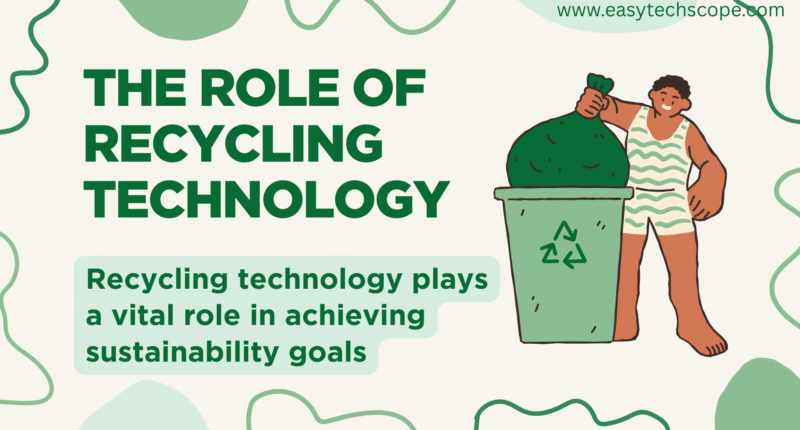Recycling has long been recognized as a cornerstone of sustainability, but recent innovations in recycling technology are making the process smarter, faster, and more impactful. As global waste continues to grow, the integration of advanced recycling methods has become essential in building a circular economy where resources are reused rather than discarded. These technologies not only reduce environmental damage but also help conserve natural resources and cut carbon emissions.
What is Recycling Technology?
Recycling technology refers to modern tools, systems, and processes that improve how waste is collected, sorted, and transformed into reusable materials. Traditional recycling methods often struggled with inefficiency and contamination, but today’s innovations bring automation, artificial intelligence, and chemical engineering into the mix.
For example, smart sensors can now detect different materials on conveyor belts, while advanced chemical recycling can break plastics down into their original components, making them reusable at scale. This shift makes recycling far more effective and helps industries rely less on raw, non-renewable resources.
Types of Recycling Technologies
Mechanical Recycling
Mechanical recycling is the most common method, involving the collection, shredding, and reprocessing of materials such as plastics, metals, and paper. Modern machines can sort materials with precision, reducing contamination and increasing the quality of recycled goods.
Chemical Recycling
Chemical recycling goes a step further by breaking down complex plastics and other materials into their basic chemical components. These components can then be used to produce new, high-quality products that perform like virgin materials. This innovation is especially valuable for hard-to-recycle plastics.
E-Waste Recycling
With the rapid rise of electronic devices, e-waste recycling has become critical. Advanced processes extract valuable metals like gold, silver, and copper from discarded electronics while safely handling toxic components. This prevents hazardous waste from polluting landfills and conserves rare resources.
AI-Powered Sorting Systems
Artificial intelligence and robotics are now widely used in recycling plants. AI-powered machines can identify and separate materials more accurately than humans, speeding up operations and reducing errors. This ensures that more waste can be recovered and reused efficiently.
Why Recycling Technology Matters for Sustainability
Recycling technology plays a vital role in achieving sustainability goals. First, it reduces the need for raw material extraction, protecting forests, oceans, and ecosystems. Second, it helps cut greenhouse gas emissions by lowering the energy required to manufacture products from scratch. For instance, recycling aluminum saves up to 95% of the energy compared to producing it from raw ore.
Additionally, recycling technology supports the circular economy, where products and materials are continuously reused rather than discarded. This shift not only reduces environmental impact but also generates economic opportunities, such as green jobs in recycling plants, technology development, and waste management services.
Final Thoughts
The role of recycling technology in sustainability cannot be overstated. From mechanical and chemical recycling to AI-powered systems and e-waste management, these innovations are transforming waste into valuable resources. By investing in and adopting these technologies, societies can reduce pollution, conserve resources, and build a cleaner future.
Ultimately, recycling technology is not just about managing waste—it’s about redefining how we value and use resources. As innovation continues, it will remain a key driver in the global journey toward sustainability.








